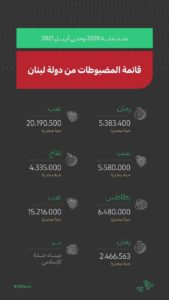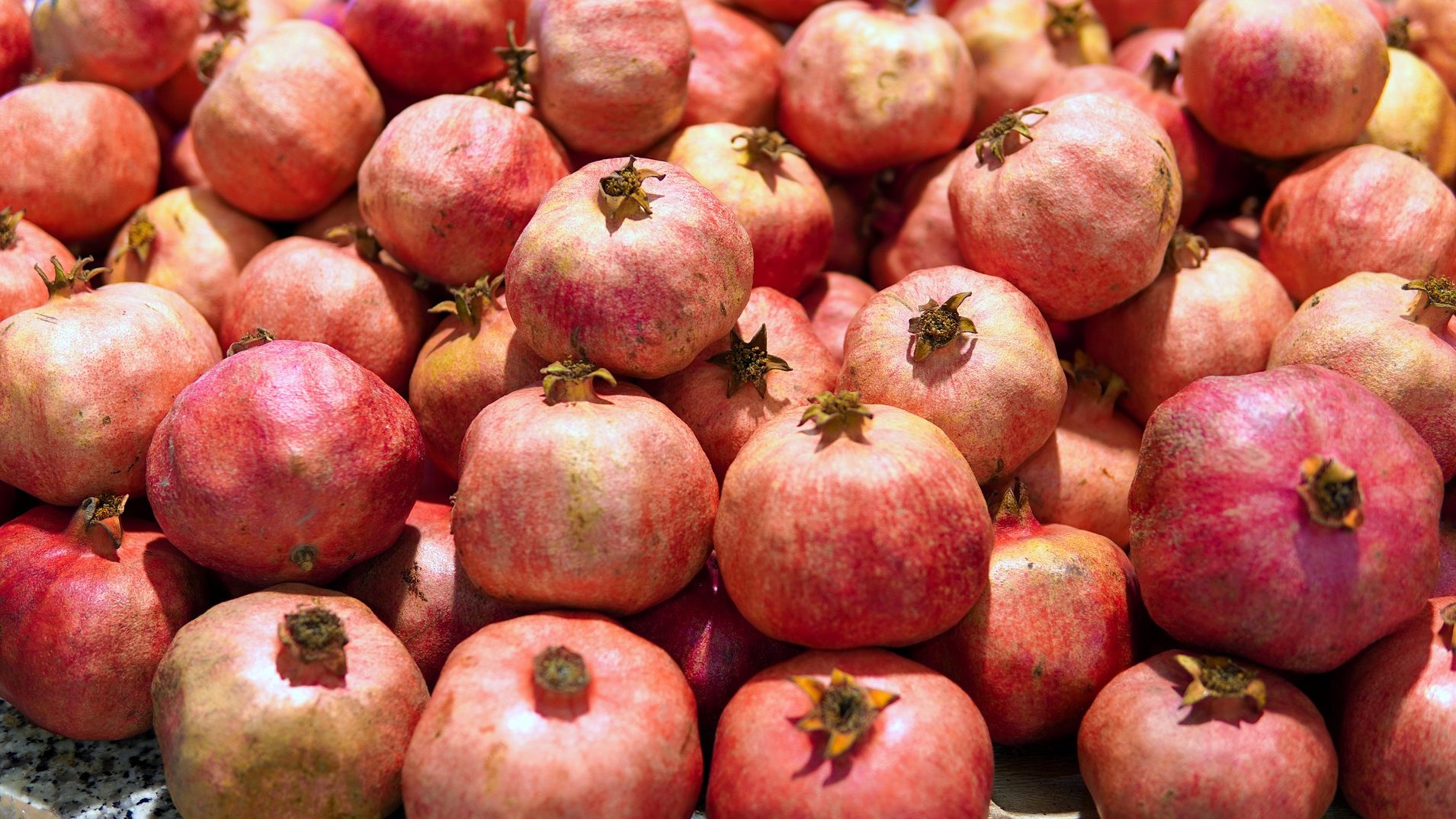Saudi Ban on Lebanese Produce Adds Pressure on Country’s Debilitated Economy
Ban over claims that fruit and vegetables are used to smuggle drugs comes as the country experiences its worst economic and political crises ever
Saudi Arabia has declared that it will not allow Lebanese fruit and vegetable imports to enter the country, claiming that they are increasingly being used to smuggle drugs. The ban came into effect on Sunday and will remain in place until Lebanon can guarantee that it has done what is needed to prevent drug trafficking.
Also on Sunday, Saudi Arabia frustrated an attempt to smuggle millions of captagon pills – an amphetamine drug – in a shipment of pomegranates arriving from Lebanon. The shipment reportedly originated in Syria and was later shipped from Lebanon.
Saudi ambassador to Lebanon, Waleed A. Bukhari, tweeted that the quantities of drugs discovered with the pomegranates were “enough to drown the entire Arab world in drugs and psychotropic substances, not just Saudi Arabia.”
On Monday, the Lebanese government asked the Saudis to reconsider the ban.
The kingdom’s ban has hit Lebanon as it is drowning in one of the worst crises in its history. The country, which endured and survived 15 years of civil war between 1975-1990 to devastating effect, now is being crushed under the twin weight of political dysfunctionality and a catastrophic economic situation. And COVID-19 isn’t helping.
Dr. Filippo Dionigi, an expert on Lebanon who teaches at the University of Bristol’s School of Sociology, Politics and International Studies, told The Media Line that the “Lebanese economy has been devastated by an unstable regional situation at least since the beginning of the Syria crisis, but the high public debt and the complete lack of governance in the past two to three years, in addition to depreciation of the Lebanese lira against the dollar and the increasing distrust in the Lebanese Central Bank, have been a catastrophe causing enormous inflation and exacerbating poverty and unemployment.”
The World Bank estimates that more than half of Lebanon’s population is currently living under the poverty line. Access to basic necessities such as food and medicine is impaired and the unemployment rate is climbing higher. The gross domestic product (GDP) has shrunk by more than one-fifth during this crisis.
Dionigi points out that COVID-19 has delivered a crippling blow to the Lebanese tourism sector, which is vital to the country.
The economic predicament is exacerbated by the absence of a functioning government. Lebanon’s President Michel Aoun and Prime Minister-designate Saad Hariri have been bickering for months, exchanging jabs and pointing fingers while the country’s citizens suffer. Meanwhile, international aid has been conditioned on a government able to institute reforms including budget cuts, banking sector changes and restructuring of the country’s debt.
“The result is an unprecedented condition of economic recession and crisis which only the international community and the International Monetary Fund in particular can help address meaningfully, but the political class is failing to create the condition to release international support and economic credit, precipitating an even more serious economic situation. The ban on Lebanese produce to the Kingdom of Saudi Arabia will add to this,” Dionigi said.
The agricultural sector, according to a Lebanese government report, is “one of the pillars of the Lebanese economy.” The industry was responsible for $1.8 billion of the country’s GDP, or 3.2%, in 2018 prior to the current crisis. In addition, the United Nations Food and Agriculture Organization points out that the industry is central to Lebanon’s agri-food sector, which is responsible for 5% of the country’s GDP. Meanwhile, agriculture is an especially important source of income in Lebanon’s poorest regions. The inability to sell the fruits of their labors will likely have dire consequences.
Saudi Arabia is Lebanon’s biggest produce client, importing 22% of its agricultural exports. The United Arab Emirates, Kuwait and Qatar are also among the top five importers of Lebanese produce. The UAE, Kuwait, Oman and Bahrain have expressed their support for the ban.
Rita, a Lebanese dental surgeon, tweeted in response to the Lebanese drug exports: “Lebanon used to export doctors, engineers and brains. The majority of Lebanese people are ashamed of the wrongdoing of Hizbullah and its allies. We are being held hostage by Iran’s ayatollah in our own country.”
Abdullah Sunaitan from Riyadh also responded to the smuggling on Twitter, tweeting that “hundreds of young Saudi men have become victims of this scourge, Captagon, which destroys brain cells and causes diseases such as epilepsy, mental illness and neurological sicknesses – and the source was Lebanon.”
Meanwhile, Lebanon’s farmers have urged Riyadh to repeal its decision. Antoine Hoyek, head of the Lebanese Farmers’ Association, has called through interviews in several Arabic media outlets for immediate action on the part of the Lebanese government to solve this latest predicament and end the ban, whose weight falls on the shoulders of the Lebanese farmer. Hoyek says that 55% of the country’s agriculture exports will be lost if the kingdom’s Gulf allies join the ban, totaling $92 million in yearly sales.

An infographic tweeted by Saudi Ambassador to Lebanon Waleed A. Bukhari, detailing the number of narcotic pills found in Lebanese fruits and vegetables imported to Saudi Arabia.
Drug smuggling from Lebanon appears to be a serious problem. According to Bukhari, more than 57 million narcotic pills have been discovered in produce shipments from Lebanon by the Saudi authorities in recent months. However, Dionigi points out that “if the Saudi decision was only motivated by a war on drugs then the solution would not be necessarily a blanket ban on Lebanese exports, which could hurt also Saudi consumers in the medium-long term, but a closer monitoring of products originating from countries that can be places of production or transit of drugs.”
Instead, he suggests, the ban may possibly be an attempt by the government of Saudi Arabia to influence the ultimate formation of a government in Lebanon. The current complexity and murkiness of the Lebanese political arena makes it hard to ascertain the Saudi interest and agenda. However, “usually their agenda is that of countering the influence of Iran,” which in the Lebanese context means the Islamic Republic’s proxy, Hizbullah. “Smuggling of captagon and drugs at large has been associated with Hizbullah on multiple occasions,” Dionigi said, but stressed that there is no hard evidence to substantiate this.
A Saudi attempt to block Iran’s regional proxy may be behind the ban, “but unless further details emerge, we are in the field of speculations,” he said.


